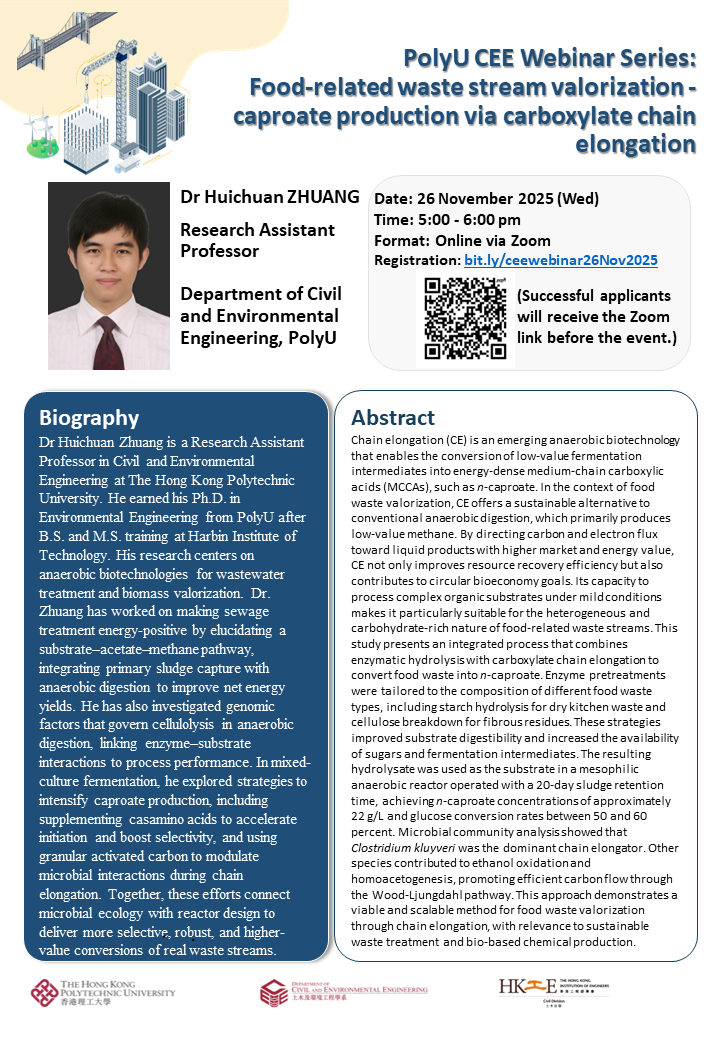Food-related waste stream valorization - caproate production via carboxylate chain elongation
Seminar
-
Date
26 Nov 2025
-
Organiser
CEE / HKIE Civil Division
-
Time
17:00 - 18:00
-
Venue
Webinar
Speaker
Dr Huichuan ZHUANG
Enquiry
CHAN, Winnie PK [CEE] winnie.pk.chan@polyu.edu.hk
Summary
Chain elongation (CE) is an emerging anaerobic biotechnology that enables the conversion of low-value fermentation intermediates into energy-dense medium-chain carboxylic acids (MCCAs), such as n-caproate. In the context of food waste valorization, CE offers a sustainable alternative to conventional anaerobic digestion, which primarily produces low-value methane. By directing carbon and electron flux toward liquid products with higher market and energy value, CE not only improves resource recovery efficiency but also contributes to circular bioeconomy goals. Its capacity to process complex organic substrates under mild conditions makes it particularly suitable for the heterogeneous and carbohydrate-rich nature of food-related waste streams. This study presents an integrated process that combines enzymatic hydrolysis with carboxylate chain elongation to convert food waste into n-caproate. Enzyme pretreatments were tailored to the composition of different food waste types, including starch hydrolysis for dry kitchen waste and cellulose breakdown for fibrous residues. These strategies improved substrate digestibility and increased the availability of sugars and fermentation intermediates. The resulting hydrolysate was used as the substrate in a mesophilic anaerobic reactor operated with a 20-day sludge retention time, achieving n-caproate concentrations of approximately 22 g/L and glucose conversion rates between 50 and 60 percent. Microbial community analysis showed that Clostridium kluyveri was the dominant chain elongator. Other species contributed to ethanol oxidation and homoacetogenesis, promoting efficient carbon flow through the Wood-Ljungdahl pathway. This approach demonstrates a viable and scalable method for food waste valorization through chain elongation, with relevance to sustainable waste treatment and bio-based chemical production.





